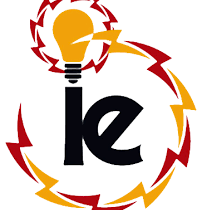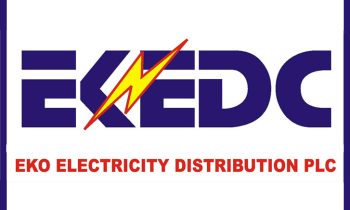
Olusola Bello
There is new hope on the horizon as it has been acknowledged by some industry experts in the power sector that for the first time in our history, in December 2021, Gencos delivered to the Discos via Transmission Company of Nigeria (TCN) over 4,000MW each day, precisely average 4,261.25MW and 102,270MWh daily through December, with no system collapse and no drop below 4,000MW.
This trend according to Eyo Ekpo Eyo, former Commissioner at the Nigerian Electricity Regulatory Commission (NERC) in one of his Social Media Handles has continued into January.
“Consistent production and delivery to Discos over 4GW/100GWh for a full month without a system collapse has never happened before. So, this is a “big” milestone, one with real value, albeit it has taken far longer than expected to achieve,” he said.
“For me, it’s a sign of what could be, if the various moving parts of Nigeria’s electricity value chain were allowed to work as designed. Certainly, this has more value than the usual talk of 13,000MW installed capacity (but no fuel or transmission capacity to move it around).”
He said next should be to move the sector to a point where no less than 95% of revenues are returned to the Gencos that deliver this consistency.
According to him, the snail’s pace at which this milestone has been reached also indicates a need to consider a restructuring of Nigeria’s single (seemingly too large) electricity sector.
“Still, huge congrats to the hydro Gencos who keep the system balanced, the thermal Gencos that deliver 75% of energy, TCN that keeps the grid working, the Nigerian (Electricity) System Operator responsible for skillfully directing the flow of this energy across the grid, the gas suppliers that keep the thermal Gencos operating…and then Discos that actually take the energy and deliver it to the customer at the end of the line. This level of consistency can only be delivered when they all work together. Indeed, it is doable.”
Recently, in spite of the controversies over the ineffective and inefficient way the power sector has performed, Garba Shehu, the presidential spokesperson said the administration of President Muhammadu Buhari has greatly improved power generation in the country.
Even though he failed to provide statistics to back up his claims, he said though the administration has been constrained by “situations on the ground”, the government has been able to generate more than 13,000 megawatts of power.
Garba Shehu who spoke in an interview on a Channels Television programme, Sunrise Daily, weekend, stated further that the government has also doubled power availability in the country.
He said the government inherited a reckless privatisation of the power sector, done by the Goodluck Jonathan administration, but that it has been able to up its uptake by 5,000
In 2013, the power sector was privatised as the electricity distribution and generation sub-sectors were sold to core investors, while the federal government held the transmission sub-sector.
“The situation on ground constrained the government and the party from delivering as much more than what we have. As we speak today we have doubled power availability in the country,” he said.
“In terms of generation, it has improved 200 times. We have the capacity to generate more than 13,000 of power. The uptake is up to 5,000 as we speak now. That is not the best but it’s an improvement on the 2,500 megawatts that we inherited.
“We aspire to do 20,000 or 30,000 megawatts of power, we haven’t done that but we have launched 19,000 availability. It’s remarkable, why don’t we look inwards and use out the 13,000 that are available. A lot of power is generated and wasted in some cases.
“This government inherited a reckless privatisation process, which the president said in the interview that it was largely driven by the need to gratify political interest.”
President Muhammadu Buhari also had expressed his displeasure with the state of electricity in Nigeria.
He said Nigeria currently has the capacity to produce 13,000 megawatts of electricity but currently, Africa’s most populous nation produces just 4,000 megawatts on the national grid.
The President had in May 2018 queried the spending of $16bn on power projects during the administration of former President Olusegun Obasanjo.
But speaking during an exclusive interview on Channels Television on Wednesday, the President reiterated his administration in providing infrastructure for Nigerians, including improving electricity.
When asked if he is happy with the nation’s capacity of electricity production, the President replied in the negative.
“I am not because I identify that no country can develop without infrastructure and infrastructure means road, rail and power,” Buhari said.s
“This government is working very hard on the road. Try to imagine what was happening between Lagos to Ibadan six months ago and what it is now.
“We are doing from Lagos to Kano the rail, road from here to Kaduna to Kano. So we have to get the infrastructure right and then Nigerians will mind their own business. But when the infrastructure is not there, the roads are not there, the rail is virtually killed, no power, what do we expect people to do?”
The President also shed more light on why the electricity supply is yet to be stable in the country.





